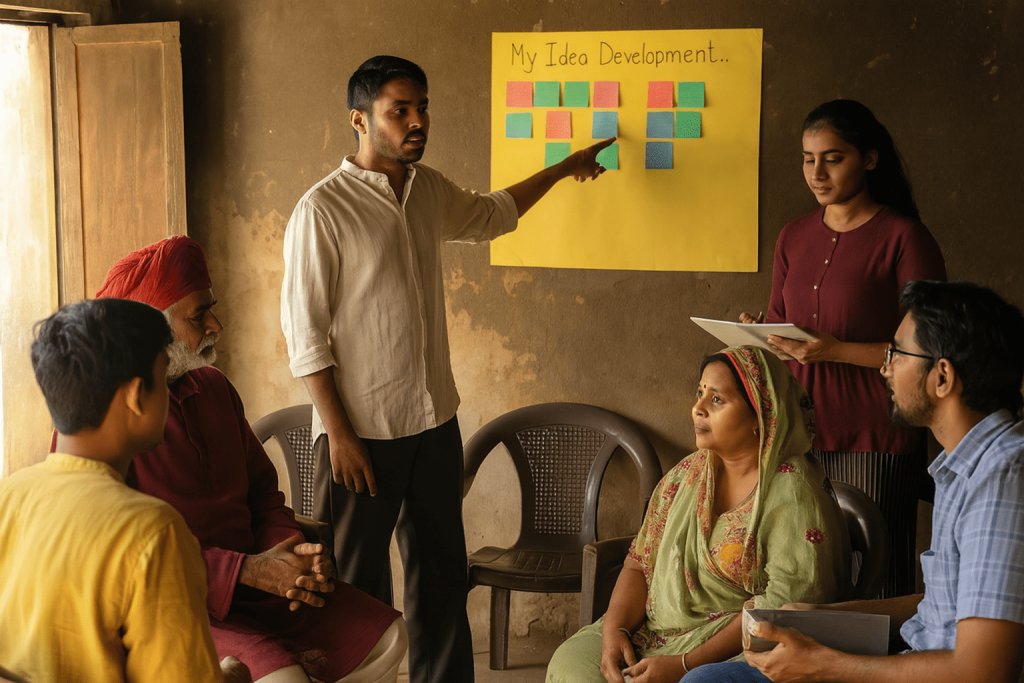“If you do what you have always done, you will get what you have always gotten.” – Tony Robbins
“There are times where the greatest change needed is the change of your viewpoint.” – Denis Diderot.
The blog talks about my personal experience in the development sector and how the experience unfolded my quest to go deeper and question my understanding of life.
I had an experience where I had an intention to digitally empower the villagers of Parol, a village on the outskirts of Mumbai. I thought I was privileged to have the power of the internet, which also helped me create opportunities for villagers. I wanted villagers to utilise this power in a positive way and help others around them.
How does it feel when you take an action thinking that it is 100% correct and it turns out to be the exact opposite? I wanted to bridge the digital gap between rural and urban India. I left no stone unturned to make that happen, but in the process, I learned that I wanted the villagers to reach where I was then because I thought I was better off.
But am I better off? Do they actually need this shift? Aren’t they happier than I am? Was I doing it for my own satisfaction or for the betterment of the community? Somewhere between these questions, I got my answer. I knew I was not right, even though my intentions were good. My idea of development was underdeveloped.
I, therefore, landed at the Indian School of Development Management to broaden my perspective and understanding of this space. It has been just a month here and I am questioning my whole idea of development.
Compassion, values and principles, sustainability, creating an agency, systemic approach, collaboration, working with and not for the community, shared vision, the meaning of growth, environmental boundaries, and regeneration were not even near my idea of social service.
My thoughts are changing every day, every moment, I am excited to see how the whole year unfolds for me, I am sure ISDM will not fail to surprise me.
By Shivangi Jasrapuria, student of 2019-20 batch of PGP in Development Leadership at ISDM




